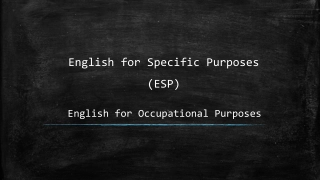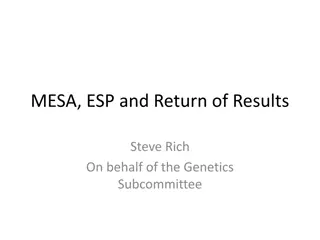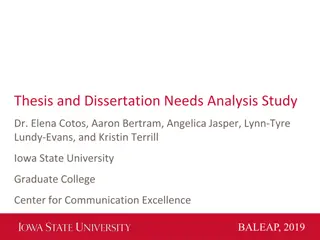
Equal Shared Parenting Insights: Legal Perspectives & Community Support
Gain valuable insights into the topic of equal shared parenting - exploring legal challenges, community support, and the role of various organizations. Learn from experts and a special guest panelist as they discuss relevant issues and provide helpful resources. This webinar series on family law promises to be informative and engaging.
Download Presentation

Please find below an Image/Link to download the presentation.
The content on the website is provided AS IS for your information and personal use only. It may not be sold, licensed, or shared on other websites without obtaining consent from the author. If you encounter any issues during the download, it is possible that the publisher has removed the file from their server.
You are allowed to download the files provided on this website for personal or commercial use, subject to the condition that they are used lawfully. All files are the property of their respective owners.
The content on the website is provided AS IS for your information and personal use only. It may not be sold, licensed, or shared on other websites without obtaining consent from the author.
E N D
Presentation Transcript
We will start the webinar shortly. Thanks for joining in. May 7, 2020 1
EQUAL SHARED PARENTING: WHY IS THE LEGAL ESTABLISHMENT SO OPPOSED? GENE C. COLMAN GENE C. COLMAN FAMILY LAW CENTRE FAMILY LAW CENTRE ( May 7, 2020) 3RD IN A SERIES OF PUBLIC WEBINARS Gene C. Colman, B.A., LL.B.
In In support support of the North of the North York York Harvest Harvest Food Bank Food Bank EQUAL SHARED PARENTING: WHY IS THE LEGAL ESTABLISHMENT SO OPPOSED? May 7, 2020 Gene C. Colman, B.A., LL.B.
EQUAL SHARED PARENTING INTRODUCTION North York Harvest Food Bank https://northyorkharvest.com/gene-c-colman/ May 7, 2020 4
EQUAL SHARED PARENTING INTRODUCTION Our Partners Brayden Supervision Services Canadian Association for Equality (CAFE) Canadian Equal Parenting Council Equal Parenting for Children Lawyers for Shared Parenting Side by Side Supervised Access Services May 7, 2020 5
EQUAL SHARED PARENTING INTRODUCTION Our Team https://www.complexfamilylaw.com/Our-Team/ Gene C. Colman Gloria Antwi Jenny Kirshen Robert McNeillie Kulbir K. Rahal Vaid Law Clerk: Kim Pitre May 7, 2020 6
EQUAL SHARED PARENTING INTRODUCTION WITH SPECIAL GUEST PANELIST MR. GEORGE PISKOR May 7, 2020 7
EQUAL SHARED PARENTING INTRODUCTION How to present questions: You can send your questions to Rob McNeillie in the Q & A section of the ZOOM platform. You can email Rob: robert@complexfamilylaw.com May 7, 2020 8
EQUAL SHARED PARENTING INTRODUCTION Based upon May 2019 presentation to 56th Annual International Conference Association of Family & Conciliation Courts "Equal Shared Parenting International Innovations: Evaluating Myths and Stereotypes" Access at my web site: https://www.complexfamilylaw.com/Children-s- Issues/Custody-Access.shtml Lengthy paper including footnotes and sources, click here. The shorter Powerpoint presentation, click here. May 7, 2020 9
EQUAL SHARED PARENTING INTRODUCTION OUTLINE 1. Terminology (a) Equal Shared Parenting (ESP); (b) Presumption of ESP 2. Social Science Consensus 3. ESP is widespread 4. Public Support Worldwide 5. Legislative Initiatives 6. Arguments Against ESP vs Arguments for ESP 7. Summary May 7, 2020 10
1. Shared Parenting- Terminology (A) No standard definition currently exists Equal Shared Parenting (ESP) is defined as: Joint Legal Custody (Joint Parental Responsibility/decision-making) and Joint Physical Custody (Parenting time) With maximum practicable 50:50 child time with each parent Subject to evidence-based consideration of child-safety As the highest embodiment of the best interests of the child standard 2019-05-31 11
Should there be a Rebuttable Presumption? What is it? an inference drawn from certain facts that establish a prima facie case, which may be overcome by the introduction of contrary evidence Constitutes a legal starting point or shortcut for assumption of facts placing onus on party opposing facts Black s Law Dictionary (9th ed) Presumptions vary by type: Presumption of law - Inference of fact must be made until disproven or fact pattern changes Presumption of Fact - Strength of assumption left to judicial discretion Mixed Presumption Combination of presumption of law and Fact 2019-05-31 12
F. Should there be a Rebuttable Presumption? 2. Why use it? Legal shortcut to economize on court and litigant resources by assuming given set of legislative or social facts. Sends social normative signal (i.e. bargaining in the shadow of the law). Sends policy signal to judiciary: Codification of general practice ( i.e. consistency) Corrective signal if jurisprudence veering away from policy intent Underscore shift/importance of social policy direction Facilitates rapid adoption of policy intent/paradigm Strongest form of policy directive along continuum of option/preference/presumption. 2019-05-31 13
2. Social Science/Practitioner Evolving Consensus YEAR MILESTONE 1994 Middleburg (sponsored by NICH): 18 convened experts support continuity of parental relationship consensus Parenting time should be be distributed so that it would ensure the involvement of both parents in important aspects of their children s everyday lives and routines including bedtime and waking rituals, transition to and from school, extracurricular and recreational activities . Bauserman: First Meta-Analysis (33 studies) found joint custody outcomes superior to sole custody on all measures. Refuted arguments that JPC fosters conflict or Yo-Yo syndrome. 2002 2013 AFCC Think Tank: Conservative but significant baseline 12-point consensus of 32 science and family law experts: first public recognition of meritorious aspects of shared parenting; historical conceptual leap by recognizing shared parenting constitutes a public health issue transcending legal concerns Shift away from rigid adherence to individualization towards presumptive joint decision-making There is enough research to conclude that children in families where parents have moderate to low conflict and can make cooperative, developmentally informed decisions about the children would clearly benefit from JPC arrangements May 7, 2020 14
Social Science/Practitioner Evolving Consensus (contd) YEAR MILESTONE 2014 Warshak Consensus: Endorsed by 110 experts, central conclusion is that shared parenting should be the norm for parenting plans for children of all ages, including young children [recognizing] that some parents and situations are unsuitable for shared parenting . Contains 7 recommendations providing practical guidance. 2016 Baude, Pearson & Drapeau: Second Meta-Analysis (19 studies) confirms Bauserman. Also found parenting time at higher levels has beneficial development effects. 2018 Nielsen 60-study Summarization: Reconfirms superiority of JPC over SPC and demonstrates JPC superiority remains regardless of parenting factors, family income, or parental conflict as previously hypothesized determining factors 2018 ICSP Consensus by 12 experts: The evidence is now sufficiently deep and consistent to permit social scientists to provisionally recommend presumptive SP to policy-makers these statements are explicitly made guardedly We might aptly characterize the current state of the evidence as the preponderance of the evidence (i.e., substantially more evidence for the presumption than against it). A great many studies, with various inferential strengths, suggest that SP will bestow benefits on children on average, and few if any studies show that it harms them . May 7, 2020 15
SUMMARY SUMMARY May 7, 2020 16
3. ESP is Widespread Shared Parenting Prevalence Select North American Jurisdictions 50.0% 45.0% 40.0% 35.0% 30.0% 25.0% 20.0% 15.0% 10.0% 5.0% 0.0% WI AZ WA CA BC QC ON AB Source: reported stats in literature. Note: shared parenting definitions vary by jurisdiction. May 7, 2020 17
Consensual Parenting Time Arrangements- US ( Custody Xchange commercial survey) 35% nationwide average Red States : 32% Blue States : 37% Purple States: 40% % states with equal custody as standard: Red States: 22% Blue States: 40% Purple States: 59% "Our study shows 40 percent of states aim to give children equal time with each parent Ben Coltrin Custody Xchange President May 7, 2020 18
4. Public Support Worldwide Shared Parenting International Polls 74% Average Support (includes undecided) 100.0% 90.0% 80.0% 70.0% 60.0% 50.0% 40.0% 30.0% 20.0% 10.0% 0.0% Rev 1.1 May 7, 2020 19
.and public supports ESP independent of gender, age, region or political affiliation not only in Canada, but similar results from ESP polls in KY, OH, KS, TX May 7, 2020 20
and there are growing indications that ESP has implications for politicians who don t support it. POLL QUESTION RESPONSES KY TX 2019 KS Average (2018) (2019) Would you be more likely or less likely to vote for a candidate who supported equal parenting time for fit parents following a divorce, or would it make a difference? More Likely 61% 57% 63% 60% Less Likely 11% 16% 23% 17% Wouldn't make a difference 24% 24% 11% 20% Not sure 4% 3% 4% 4% May 7, 2020 21
5. Legislative Initiatives US since 2014 (Increasing pace of initiatives focusing on presumptive/preference shared parenting with main activity in 12 states) ( 27 states with shared parenting initiatives in 2019) # State Legislative Initiatives (2014-2019 YTD) TYPES OF JOINT CUSTODY INITIATIVES JOINT CUSTODY INITIATIVES # 50 % 40 Presumption Maximizes time Preference Friendly Parent Rule Presump.- Temp. Custody Option TOTAL 120 7 24 4 9 69.0% 4.0% 13.8% 2.3% 5.2% 30 20 10 0 2014 2015 2016 2017 2018 2019 10 174 5.7% 100.0% Initiative Intensity by US States since 2014 Shared Parenting "Battleground" States (12 States with at least one initiative per year) 14 12 # Initiatives since 2014 12 9 7 6 5 States 10 MN, MO, NY IA, WV MA MD, NJ, SD, VT FL, KY # States 8 6 4 2 0 0 1 2 3 4 5 6 7 8 9 10 11 12 # Initiatives by a state since 2014 Rev. 1.1 May 7, 2020 22
Current/Recent Shared Parenting Legislative Initiatives International Country Initiative USA 2020 YTD 22 shared parenting bills in 11 states 2019 43 shared parenting bills in 11 states 2018 KY becomes first state to adopt rebuttable presumption of equal shared parenting. 2018 SD adopts preference for shared parenting 2016 FL Governor vetoes shared parenting legislation 2016 MO adopts maximum time provisions Canada Bill C-78 (2018) with subtle shift from Friendly Parent Rule to encumbered maximize time provisions to reportedly encourage shared parenting. In effect on 1 July 2020. Denmark As of 2019-04-01, 3-month reflection period replaces same-day divorce/separation process. Joint parental authority and care continues in interim and as default thereafter. Also, primary residence replaced by dual residences of equal status to encourage parental equality and shared parenting. Italy Perfect Co-parenting proposal (2018) aims for presumptive equal parenting. Private child support being proposed. Rev 1.1 May 7, 2020 23
Current/Recent Shared Parenting Legislative Initiatives International Country Initiative Israel Tender years presumption is statutory up to age 6 to mothers; By 2006 judicial attitudes changed dramatically. By 2019, 60/40 and 50/50 (less frequent) time sharing is common notwithstanding no legislative change. Initiative to reduce automatic maternal custody from age 6 to age 2 not approved. Australia Law Reform Commission Report (March 2019) recommends against shared parenting. Recommendation 7 : amended to replace the presumption of equal shared parental responsibility with a presumption of joint decision making Recommendation 8: consider, in certain circumstances, the possibility of the child spending equal time, or substantial and significant time with each parent, should be repealed. Rationale: a) Presumption of equal shared parental responsibility interpreted by many as presumption of equal shared care b) Law apparently practically impenetrable for the average person and presents serious challenges to any lawyer c) Judicial omission of multifarious factors in decision renders it susceptible to appeal. Alternatives: None considered including clarifying legislative text. Social science research selectively ignored. May 7, 2020 24
Shared Parenting- Perspective on International Trends Strong international public support in polls reflected in increasing private shared parenting or hi-visitation time arrangements Joint Legal Custody remains norm but distinctive and continuing trend towards increased parenting time and legislated shared parenting Steady and mildly accelerating pace of legislative initiatives with similar pro/con forces in each country: PRO - Public, Family Rights Groups CON - DV groups, Select Women s Groups, Bar Associations May 7, 2020 25
Equal Shared Parenting Equal Shared Parenting So, if ESP s advantages are so clear from the social science, and if the public around the world embraces it as the parenting regime of choice, and that public will is demonstrated in poll after poll, and there are multiple initiatives to embrace some form of ESP, then .. WHY IS THE LEGAL ESTABLISHMENT SO OPPOSED? May 7, 2020 26
6. Arguments Against ESP vs Arguments for ESP Shared Parenting debate may be visualized in terms of three overlapping waves: WAVE 1: Primary Parent Presumption deny/denigrate shared parenting WAVE 2: Yes, but it s not safe Phase - DV and Conflict WAVE 3: Well, OK, maybe but no presumptions Gandhi View on Social Change First they ignore you, then they laugh at you, then they fight you, then you win. Mahatma Gandhi Mahatma Gandhi May 7, 2020 27
WAVE 1: Primary Parent Presumption deny/denigrate shared parenting 1.1 Attachment Theory 1.2 Infant/Toddler Applicability 1.3 Yo-Yo Argument 1.4 It s only a Father s Rights Issue 1.5 It s only a ruse to reduce child support May 7, 2020 28
Wave 1: 1.1 Attachment Theory CON PRO Multiple Attachment Theory as generally accepted successor recognized not only that children form multiple strong attachments at early age, but that multiple-attachments reinforce rather than detract stability and parental attachment. Bowlby s Single Attachment theory of primary psychological parent used to minimize need for second parent. Single attachment Theory argues that secondary attachment threatens psychological stability and induces stress and reduces primary attachment. Pro-SP advocates rely on Multiple Attachment Theory to argue shared parenting. Anti-SP advocates continue to frame their arguments in terms of traditional single attachment theory. Bowlby himself agreed his theory was too limited and accepted multiple attachment theory as superior. May 7, 2020 29
Wave 1: 1.2 Infant/Toddler Applicability CON PRO Subject to considerations of knowledgeable care-giving, social science has confirmed young children generally have superior or equal outcomes with paternal involvement and care Bowlby s Single Attachment theory of primary psychological parent used to minimize need for second parent In any case, young children can not tolerate stress and instability May 7, 2020 30
WAVE 1: 1.3 Yo-Yo Argument CON PRO As extension of single attachment theory, shuttling between two households or living out of a suitcase creates attachment issues, instability and stress. Ergo, shared parenting is inappropriate. Numerous empirical studies have shown children are resilient and that dual residency is not a major factor. Any issues are more than offset by nurturing benefits of both parents. May 7, 2020 31
WAVE 1: 1.4 Shared Parentingits only a Fathers Rights Issue (Gender Wars) CON PRO Fathers Rights Groups are often negatively framed as basement-dwelling angry white men , anti-feminist or misogynist organizations out of touch with mainstream seeking to regain patriarchal society to retain power balance . Some truth to this in 1970-80 timeframe as groups were reacting to gender feminist views supplanting traditional equality feminism. Fathers Rights have since transitioned to Family Rights Movement (FRM) with broader support base around core issues: Equal Shared Parenting = Best interests standard Gender equality DV is a genderless issue Human Rights focus for child/parent issues Fathers Rights Groups portrayed as being in denial of asserted epidemic of gender-based violence. Ergo, Fathers Rights Groups position should be discounted. More recent literature has softened views. FRM views are consistent with social science, international laws, and public opinion. Au contraire, the FRM is the mainstream. May 7, 2020 32
WAVE 1: 1.5 Its only a ruse to reduce child support CON Unsupported assertions that fathers seek shared parenting only to reduce child support PRO CON side raises 2 issues: underlying paternal motivation and assertion of economic savings Cite decreased child support payments under shared parenting as only fact Multiple researchers have confirmed fathers are motivated to play active role in child s life independent of economic issues Unsupported rebuttal that child support payments are half the equation ignoring the reality of additional direct expenses to maintain child in shared parenting relationship Neither side has ever presented a quantitative analysis of the merits of their position so we did our own. Our analysis ( based on dominant Income Shares model) shows the following: Out-of-pocket (OOP) expenses ( child support Plus direct child expenditures) are never less and typically more under shared parenting due to the fixed costs of the second residence for the child. Reduction in child support is typically more than offset by direct child expenses- i.e. no financial incentives for payer In fact, shared parenting is generally more expensive option for both parents as parents contribute towards OOP relative to earnings and total child costs increase under shared parenting. BUT, if parent(s) choose to maintain child at lower ( but still adequate) standard of living (SOL), then cost savings promote perverse economic incentive for both parents to pursue sole custody to maximize savings. This reflects flawed public policy of setting an unreasonably high Guideline SOL relative to parental expectations which promotes litigation conflict. May 7, 2020 33
WAVE 2: Yes, but its not safe Phase - DV/Conflict Preclude Shared Parenting 2.1 DV 2.2 Hi-Conflict 2.3 Only if both Parents Agree 2.4 Shared Parenting Promotes Litigation 2.5 Shared Parenting- Tried and rolled back? May 7, 2020 34
WAVE 2: 2.1 DV CON Shared Parenting is not appropriate in situations of DV. Some adopt position that any form of DV precludes shared parenting; others acknowledge that types of DV must be differentiated. Many argue DV is gender-based phenomenon limiting consideration of fathers. PRO Agreed. No researcher or advocate of shared parenting disagrees. Proponents of Shared Parenting don t impose the implied requisite of a perfect parent and emphasize the need to differentiate types of DV and offer therapeutic intervention where appropriate. DV is a genderless phenomenon. Emphasis needs to be not on gender but on type and severity of DV. 2019-05-31 35
WAVE 2: 2.2 Not Appropriate in Conflict Situations CON Conflict of any intensity constitutes DV precluding consideration of shared parenting. More recently, position refined to not necessarily preclude low to intermediate conflict, but hi-conflict situations precluded. PRO Children in JPC in hi-conflict, benefit at least as much as SPC. Shared Parenting often reduces conflict and promotes co-operation. Shared Parenting not appropriate under severe and sustained conflict situations. 2019-05-31 36
WAVE 2: 2.3 Only When Both Parents Agree ( Co-operating Parents Prerequisite) CON Variation of Conflict argument. Shared Parenting requires joint agreement, otherwise it promotes conflict and litigation. PRO Consensual agreement indeed preferable. JPC with non-cooperating parents still has superior or equal outcomes to SPC. 2019-05-31 37
WAVE 2: 2.4 Shared Parenting Promotes Litigation CON As extension of DV/Conflict line of argumentation, opponents assert shared parenting promotes litigation. PRO Empirical data in shared parenting jurisdictions indicates significant and sustained drops in litigation and reliance on court. Drop in litigation may be partially attributable to: Adoption of med/arb introduction of parental coordinators Improved public health/social support as part of reforms that extend beyond legal domain 2019-05-31 38
WAVE 2: 2.5 Shared Parenting- Tried but rolled back? CON Claims made that shared parenting legislation has been rolled back or revisited in various jurisdictions: PRO Allowing for semantic nuances and recognition that all legislation evolves, shared parenting remains intact in all cases and stronger in some: California (1988) legislation amended to remove unintended rank-ordered preferences (i.e. corrective legal drafting). Australia (2011) - Change placed greater weight on DV but did not change 2006 shared parenting text. Law Reform Commission Report March 2019 would roll back shared parenting. Denmark (2012) - clarification that equal parenting an option, not to be construed as right. In 2015, shared parenting strengthened with anti-gatekeeping provisions. Israel (~2016) Proposal to change existing default maternal custody preference from age 6 to age 2 shelved. California Australia Denmark Israel 2019-05-31 39
WAVE 3: Well, OK, maybebut no presumptions 3.1 Individualization & One-Size-Fits-All 3.2 Not in the Best Interests? 3.3 Parental Rights vs Children s Rights 3.4 Effect Size- Does Size Matter? 2019-05-31 40
WAVE 3: 3.1 Individualization & One-Size-Fits-All CON Shared parenting reduces judicial discretion for individualized tailoring. Shared parenting needlessly imposes rigid one-size-fits-all model (e.g. 50:50 parenting time). No empirical evidence offered. PRO Au contraire, standard Sole Custody model is best example of one-size-fits- all. Individualization is empty argument as every case must be individually assessed as basic precept of law. Empirical data from numerous jurisdictions shows great variety in parenting time splits with 50:50 not being the dominant mode. 2019-05-31 41
WAVE 3: 3.2 Not in the Best Interests? CON Shared parenting is not in the best interests of the child, or does not conform to the best interest standard. PRO Since the best interests standard is devoid of legal meaning, the assertion is an empty emotional argument. Social Science, UN CRC and public opinion all agree continuity of parental and family relationships is the best arrangement. Ergo, we have now arrived at a point where we can safely define shared parenting as being the core criteria to define the heretofore vague and indeterminate best interests standard. 2019-05-31 42
WAVE 3: 3.3 Parental Rights vs Childrens Rights CON Shared parenting privileges parental rights over children s rights and the paramountcy principle No substantiation provided. Assumes parens patriae has largely unfettered scope PRO Argument wrongly assumes parental and children s rights are mutually exclusive (i.e. zero sum game) which contradicts UN CRC- i.e. argument is brilliant deflection resting on false premise Children s Rights are indeed paramount but inextricably interwoven with parental rights. Parens patriae doctrine has had overly broad interpretation in modern era trenching on pre-constitutional family rights for fit families. This means that parental authority/responsibility is not provisionally terminated at divorce/separation as often assumed by modern courts, more so in North America. 2019-05-31 43
WAVE 3: 3.4 Effect Size- Does Size Matter? Effect size is subjective statistical measure of the standardized difference in means (e.g. JPC vs SPC well-being) CON Since effect size values are typically small for JPC vs SPC comparisons, then JPC is not especially beneficial relative to SPC so why all the fuss about JPC and shared parenting i.e. making mountains out of molehills PRO Small effect sizes are typical in social and medical sciences and often have disproportionate impacts, especially under lifetime compounding or situations of threshold discontinuities. Apples and oranges: Old scientific assessment challenge- don't confuse the size of the difference with the real issue of the resulting impact/outcome separate questions best interests is the prima facie standard, not 2ndbest or detrimental standard as underlying CON premise. 2019-05-31 44
3.4 Effect Size: Example- small effect size (SPC vs JPC) vs large impact According to Centers for Disease Control, the U.S. Department of Justice and the U.S. Census Bureau, children raised by single parents account for: 63% of teen suicides; 70% of juveniles in state-operated institutions; 71% of high school drop-outs; 75% of children in chemical abuse centers; 85% of those in prison; 85% of children who exhibit behavioral disorders; and 90% of homeless and runaway children. Note: This does not mean sole custody is causative, rather correlative. But, as Doris Day famously sang: Little things mean a Lot 2019-05-31 45
Should there be a Rebuttable Presumption? 1. What is it? an inference drawn from certain facts that establish a prima facie case, which may be overcome by the introduction of contrary evidence Black s Law Dictionary (9th ed) Constitutes a legal starting point or shortcut for assumption of facts placing onus on party opposing facts 2019-05-31 46
Should there be a Rebuttable Presumption? 2. Why use it? Legal shortcut to economize on court and litigant resources by assuming given set of legislative or social facts. Sends social normative signal (i.e. bargaining in the shadow of the law). Sends policy signal to judiciary: Codification of general practice ( i.e. consistency) Corrective signal if jurisprudence veering away from policy intent Underscore shift/importance of social policy direction Facilitates rapid adoption of policy intent/paradigm Strongest form of policy directive along continuum of option/preference/presumption. 2019-05-31 47
Should there be a Rebuttable Presumption? 3. Different Presumptive Strengths Can be Applied to Shared Parenting Softer Presumption- presumptive shared parenting presumption that it is in the best interests of the children to have frequent and predictable contact with both parents, on a schedule that accords with the child s developmental needs, unless it can be demonstrated that such involvement poses a significant risk to the child s physical or emotional well-being Bala & Miklas (1993) Implicit Presumption equal shared parenting (AZ) Consistent with the child's best interests , the court shall adopt a parenting plan that provides for both parents to share legal decision-making regarding their child and that maximizes their respective parenting time. AZ 25-403.02 (2013) Stronger Presumption- presumptive equal shared parenting (KY) presumption, rebuttable by a preponderance of evidence, that joint custody and equally shared parenting time is in the best interest of the child. If a deviation from equal parenting time is warranted, the court shall construct a parenting time schedule which maximizes the time each parent or de facto custodian has with the child and is consistent with ensuring the child's welfare. KRS 403.270 (2) (2018) 2019-05-31 48
Should there be a Rebuttable Presumption? CON Hard Core- Shared parenting is bad; presumption makes it worse. Rear Guard Action- Shared parenting is being adopted organically; presumptions are unnecessary. Exacerbates risk Abusive parents will reign terror on spouse and children Will increase litigation Creates power imbalance Privileges parental over child rights Unsubstantiated assertions problematic Not in the best interests PRO Empirical evidence in shared parenting jurisdictions refutes CON assertions and shows shared parenting is working fine and has popular support. Limited empirical data from presumptive jurisdictions like AZ also indicated support, including by legal community. Social Science and Popular opinion support presumption. Presumption necessary to send strong social and legal signal to reset entrenched paradigm. The scientific and social consensus is sufficiently strong that onus should now fall on opponents to make their case. 2019-05-31 49
Should there be a Rebuttable Presumption? Much as it may be desirable, we may really not know how to properly individualize, tailor, or custom-fit parenting plans to achieve the best possible outcomes in each case. So, the effort and expense and time and trouble taken in the futile pursuit of case-specific decisions come with little corresponding benefits. Better to have a starting place that covers the majority of cases and families, with, of course, the ability to deviate when the fit is obviously bad. The general public strongly believes that shared parenting is that starting place and that any other position is biased. The second cost is that vagueness and ambivalence will ultimately be iatrogenic for families by leading to greater conflict. Various proposals under consideration differently incentivize parents to engage in that conflict. Presumptions, of any flavor, generally minimize such incentives. A shared parenting presumption would minimize that incentive most of all [ bold added]. Prof. Sanford Braver (2014) May 7, 2020 50






















